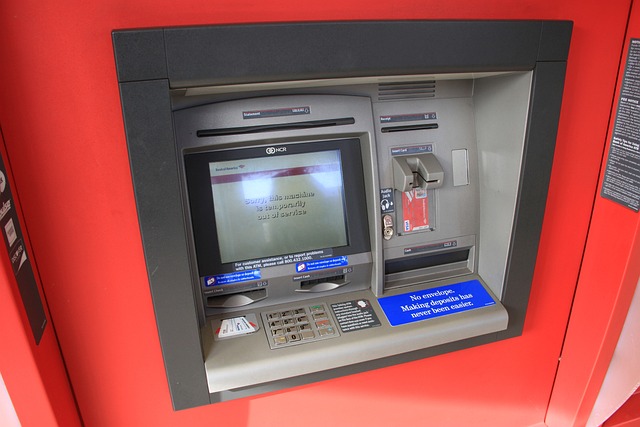Why Personal Bankruptcy Can Work For Some And Not Others

Filing for bankruptcy is still an option for anyone who has had their possessions repossessed by the IRS.Although bankruptcy tends to destroy a person’s credit, it may be the only viable option.Continue reading for more information about bankruptcy and the likely end result of going through one.
Don’t use credit cards to pay off your taxes if you’re going to file bankruptcy. In many areas of the country, you cannot get this debt discharged, and in the end you will be left owing the IRS a big sum of money. This makes using a credit care irrelevant, when it will just be discharged.
You can find services like consumer credit that consumers can use. Bankruptcy is a permanent part of your credit, so if there are less drastic options that will solve your credit problems, you want to exhaust all other options so that the future effects on your credit history are as minimal as possible.
People generally mostly feel the need to get a bankruptcy filed for when they have more money owed than they can get. If you find yourself going through this, you should know all about the laws that are in your state. The laws governing bankruptcy vary from state to state. For instance, your home might be protected in some states while you might lose it in others. It is best to become familiar with your state’s laws regarding bankruptcy before you take the steps to file.
Unsecured Credit
You may still have trouble receiving any unsecured credit card or line after a bankruptcy. If that’s the case, then try applying for a coupe of secured cards. This will allow you want to improve your credit score. After using a secured card for a certain amount of time, you are going to be able to have unsecured credit cards too.
Understand the differences between Chapter 7 and a Chapter 13 bankruptcy. Take the time to learn about them extensively, and look at the advantages and disadvantages of each.If you’re really not sure how this all works after your research, go over it again with your attorney before making the final filing decision.
If you suspect that bankruptcy filing may be a reality, don’t try to discharge all your debt in advance by emptying your retirement or saving accounts. Avoid ever touching retirement funds until you have no other choice. If you have to use a portion of your savings, make sure that you save some to ensure that you are financially secure in the future.
This kind of stress can take a heavy toll on your personal life, if you don’t combat it. Life will surely get better; you finish this process.
Make sure the time is right when you act at an appropriate time. Timing is very important when it comes to personal bankruptcy cases.Sometimes, you may need to file quickly; however, while other times, it is wise to get past the worst problems first.Speak with a bankruptcy lawyer to discuss the proper timing is for your personal situation.
Don’t wait until it is too late to file bankruptcy. It is a mistake to ignore your financial troubles, thinking they may go away on their own.It is too easy for debt to mount up and become uncontrollable, and not taking care of it could eventually lead to wage garnishment or foreclosure. As soon as you discover your debt is getting too big, take action and discuss your options with a bankruptcy attorney.
Always be honest with the information you give about your finances. It is vital that you disclose all information about your assets and income so there are no delays or penalties, such as a court barring you from filing again later in the future.
This is considered fraud, and you may even be forced in paying all of it back to credit card companies.
Don’t put off filing for bankruptcy is something you are in dire straits. It is difficult to admit that you are in over your head financially, but your debt will only grow larger if you put off your decision.
It is not uncommon for those who have endured a bankruptcy to promise to never again use credit cards after they declare bankruptcy.This may not a good decision on their part because credit to to help build better credit. If you aren’t using any credit, you may not be able to qualify for a car loan or mortgage.
Before you file for bankruptcy, find out which of your assets will be exempt from seizure. You can find a listing of the asset types that are excluded from bankruptcy in the Bankruptcy Code. Be well prepared for bankruptcy by reviewing this list. It will tell you whether are not the things you value most are subject to seizure. If you aren’t aware of this, you could lose some assets that you value.
You will want to retain a bankruptcy lawyer when filing for bankruptcy.A qualified attorney could give you of the process simpler. Your lawyer also knows how to properly file the paperwork and can answer any questions that you understand what this process means for you.
Any debts omitted from the paperwork will not be discharged at your bankruptcy.
Many people tend to get divorced and have to immediately file bankruptcy due to not foreseeing future financial difficulties. It is never foolish to think twice about divorcing.
Talk to a lot of different bankruptcy lawyers; most of them will give you a free consultation. It is important to meet with the actual attorney, not the attorney’s assistant or paralegal; those people are not permitted to give legal advice By shopping lawyers, you will be more likely to find one that makes you comfortable about the process.
Chapter 13
If you cannot use the Homestead Exemption within the Chapter 7 bankruptcy laws, you might consider filing for Chapter 13 bankruptcy to cover your mortgage. Some cases make it best for you to take your Chapter 7 case to a Chapter 13 one, dependent on what your attorney says.
Make sure that your debts are dischargeable in bankruptcy before you file. Debts like student loans may stay on your financial history regardless. You may want to consider consulting a loan consolidation service or credit repair instead.
There are two different kinds of personal bankruptcy you can file for: Chapter 7 and Chapter 13. Research both types of bankruptcy online, and weigh the positives and negatives each would offer you. Do not hesitate to have your lawyer explain any details that seem difficult to grasp. This will help ensure you make the right choice when filing.
Make sure that the lawyer you hire is an experienced bankruptcy lawyer. There are numerous attorneys from which to choose.
You should always be honest when filing the petition for bankruptcy. Any effort to hide something from the court could cause your case. Disclose income or assets that are relevant to everything going on. This will show the court that you have good intentions and can definitely help them rule properly in the proceeding.
Don’t leave all the details in your lawyer. Your lawyer is the one who knows about the bankruptcy laws, but you should still know as much as you can about the proceedings. It is vital to stay as involved as possible while filing for bankruptcy, but remember–this is your financial life on the line.
Investigate your other alternatives before you decide you have to go with bankruptcy. Consolidating current debt could make it easier to manage. Going through a bankruptcy is a long and stressful process. It will also make it tough for you to secure credit after your filing is complete. Therefore, you must make sure that there is no other option that you could take before you file for bankruptcy.
As you can see by now, you do have the option of filing bankruptcy. However, it has detrimental effects on your credit, so this should not be your first choice Knowing the ins and outs of bankruptcy can make the filing process easier and make it less likely that you’ll have to forfeit your property.


